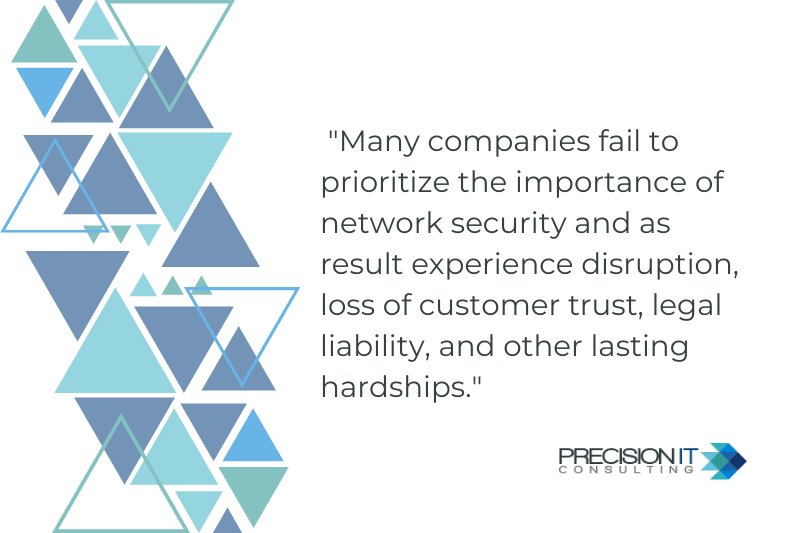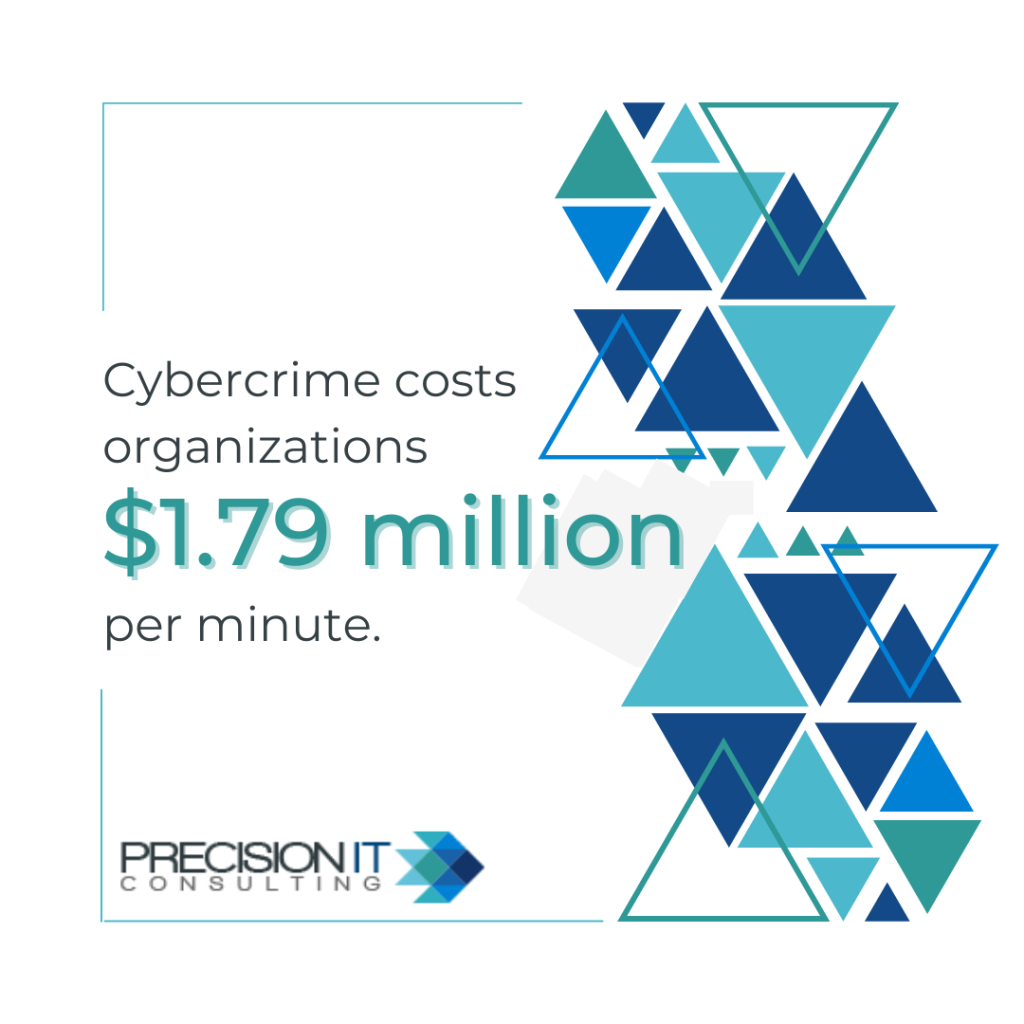No matter the size of your business you need some level of network security to protect your company’s information and data from unauthorized users.
Unfortunately, many companies fail to prioritize the importance of network security and as result experience disruption, loss of customer trust, legal liability, and other lasting hardships.
In this article, our professional IT Consultants will help explain:
- What is network security
- How network security works
- Critical importance of network security
- Types of threats prevented by network security
- Examples of network security
- Benefits of network security
If you’d rather speak to our IT professionals and have us tell you what you need for network security please call us at 604-359-5284 or request your own Network Security Audit.

What is Network Security?
Network security is the process of taking preventative measures to protect the underlying networking infrastructure from unauthorized access. Our highly skilled information security analysts employ various measures to secure networks, such as firewalls and anti-malware software applications. Securing a network requires hardware devices, such as firewalls and anti-malware software applications. Network security needs to be monitored by highly experienced analysts who are able to detect potential breaches in minutes or even seconds before an attack surfaces on a company’s network.
How Does Network Security Work?
A secure and private network is comprised of three layers:
- Physical network security includes hardware and software, such as firewalls that protect the network from outside threats.
- Technical network security involves policies like password protection for devices or encrypted data transmission to ensure privacy.
- Administrative network security includes the individual or people who manage, monitor and administers security over the computer network(s).
There are multiple defense mechanisms or tools used to create a layered defense system. For example, the first layer of the network security defense would be a firewall that provides an active monitoring, identification and threat remediation capabilities. This will keep the network as secure as possible by preventing external threats from gaining access to it. If a security breach is detected, then various tools can be used to create additional layers on top of this one for more effective protection against malicious activities within the system.
Importance of Network Security for Businesses
Cybercrime is one of the fastest-growing forms of criminal activity and unfortunately becoming more and more common in the business world. By 2025 it is anticipated that cybercrime will cost the world $10.5 trillion.
Currently, cybercrimes cost organizations almost $1.79 million per minute.

Restoring network security is just a small part of fixing the problem – there can be significant lasting damage done or theft from your company’s data or sensitive information.
Whether you have a small business network or a large enterprise network, you need trustworthy network security to:
- Protect your assets
- Guard your network and business integrity
- Allow secure data sharing between employees
- Efficiently manage your network security
What Types of Threats Does Network Security Prevent?
There are a number of specialized techniques and types of network security that may be necessary for your business. Our professional network security and IT Specialists can provide a customized solution to ensure the proper level of security in your workplace.
The two main categories in which these techniques can be classified into are:
- Physical protection – this includes things like locking down servers or physically securing equipment from theft or damage by placing it behind a locked door.
- Non-physical protections – this includes things like antivirus software, which protects against malware and other threats.
Examples of Network Security Options
There are many different types of network security. In this article, we have only listed a few of the more popular and common options.
Access Control Devices – prevents unauthorized devices or individuals from accessing your network. Access control also provides you with an authorized user list that helps you keep track of who has been logging in to your system, for what reason, and when they have accessed it last.
Anti-Malware Software – prevents threats from spreading throughout the system without any disruptions or harm that can arise if malware enters through phishing emails or infected websites. These threats can come in many forms, from viruses, worms, and Trojans – all which attempt to spread across your network with the intent of infecting computers.
Firewalls – establishes a barrier between your trusted zone and outside world. They help protect you by detecting and blocking malicious attacks, such as attacks on the network that may originate from inside or outside of the company’s private network. The can also stop identity theft via hacking/phishing attempts directed at employees’ personal networks while they are using their work computers.
Intrusion Detection and Prevention – Network security systems can detect and prevent intrusions. This can help in a number of ways, such as preventing ransomware from spreading or stopping hackers from accessing sensitive data.
VPN (Virtual Private Network) – a tool that authenticates the communication between a device and a secure network, creating an encrypted connection. It prevents unauthorized access to private information and protects against data leakages by encrypting all of its traffic with 256-bit AES encryption. They are essential in preventing malware attacks because they create security windows without compromising on speed or efficiency.
Additional Benefits of Network Security
The purpose of network security is to protect against cyberattacks and prevent data breaches, and all the harmful impacts these incidents can have on your business.
The most important network security benefits for a business are:
- Minimize disruptions from lost or inaccessible data
- Build and maintain customer trust
- Preserve reputation as a trustworthy business
- Reduce risk exposure (ie. lawsuits) should a hacking incident or data theft occur
You need to think of network security in terms of the potential liability and harm that will follow for days, months and years following a breach in network security.
Premium Network Security Solutions Offered by Precision IT Consulting
With Precision IT Consulting in Surrey BC, there’s no need to lay awake at night worried about vulnerabilities and potential risk exposures. We offer a full, comprehensive Network Security Audit that will identify any security risks, technical frailties, and critical areas needing improvement. From here our IT professionals will guide you through the best network security solutions for your company and help you implement proper network security.
Call us at 604-359-5284 or request your free Network Security Quote online.